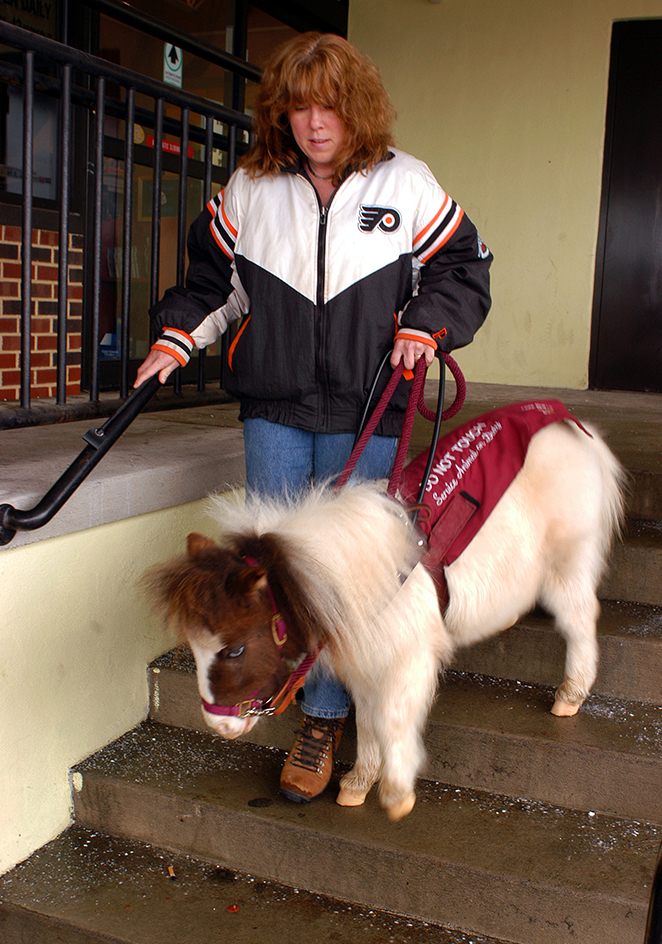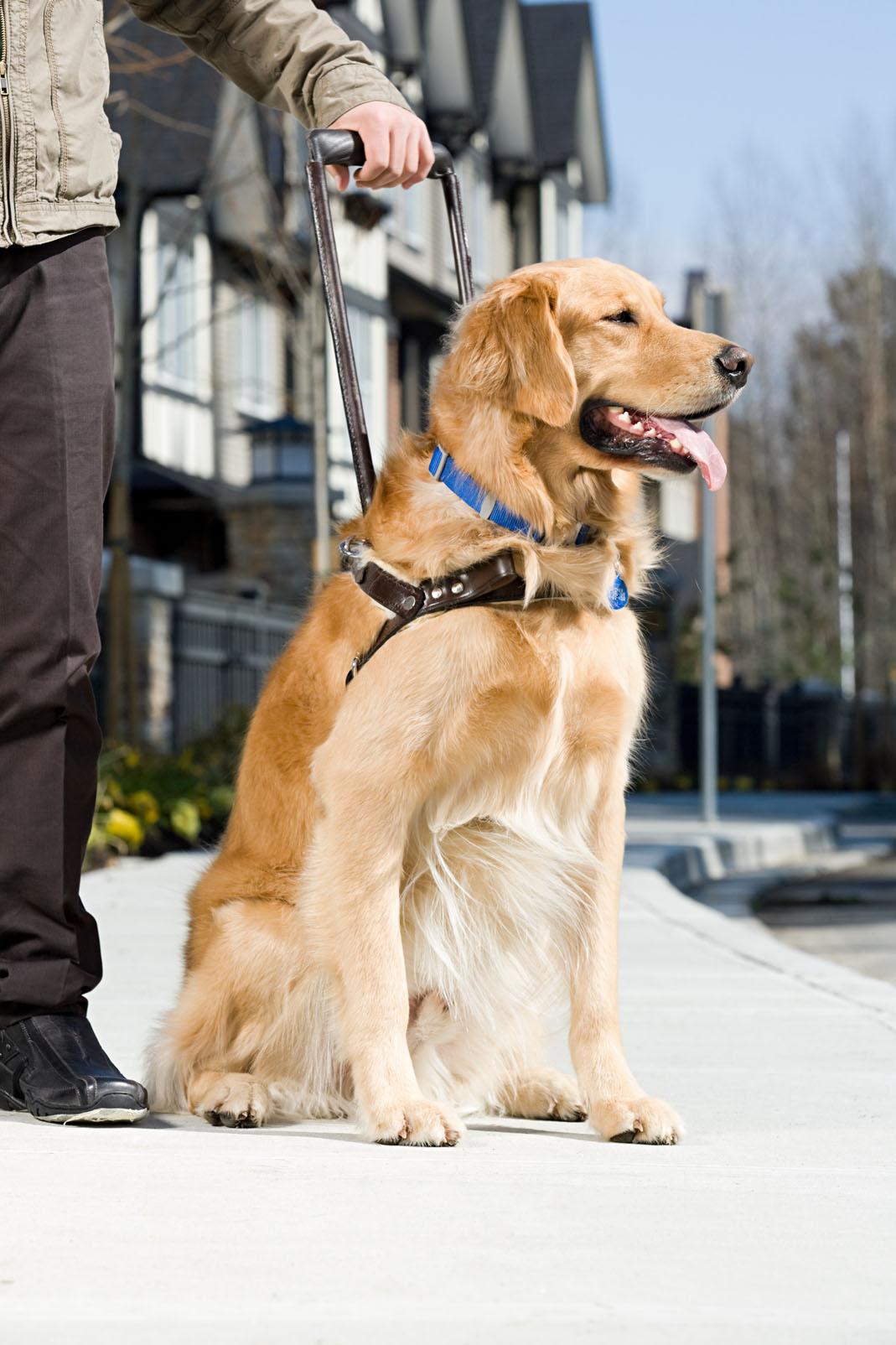Service animal is an animal trained to assist a person with a disability. Service animals can help such people lead fuller, more independent lives. Dogs are the most common service animals. Miniature horses may also be service animals.

Service animals can be trained for a variety of tasks. People with hearing disabilities may rely on service animals to alert them to sounds. Guide dogs help people who are blind or have a visual impairment (see Guide dog).

Some service animals assist people with physical disabilities. These animals may pick up items, open doors, assist with balance, pull a wheelchair, and perform other tasks. Service animals can provide comfort and assistance to people with mental illness or other psychological conditions. Service animals can also help individuals who suffer from diabetes or epilepsy. Some service dogs are thought to be able to sense low blood sugar or a coming seizure and alert their owners.
Laws in many countries protect the rights of people who rely on service animals. In the United States, for example, laws require that service animals be allowed to enter all public places, public transportation, and workplaces. Laws also require service animals to be allowed in housing where pets are not permitted. Service animals are not classified as pets.
Some service animals have identification cards and wear a vest or harness. But not all service animals carry special identification. Generally, handlers are not required to carry papers that prove an animal has been trained as a service animal. Many organizations provide support and information to people who might benefit from the assistance of a service animal.
See also Guide dog; Therapy animal.
